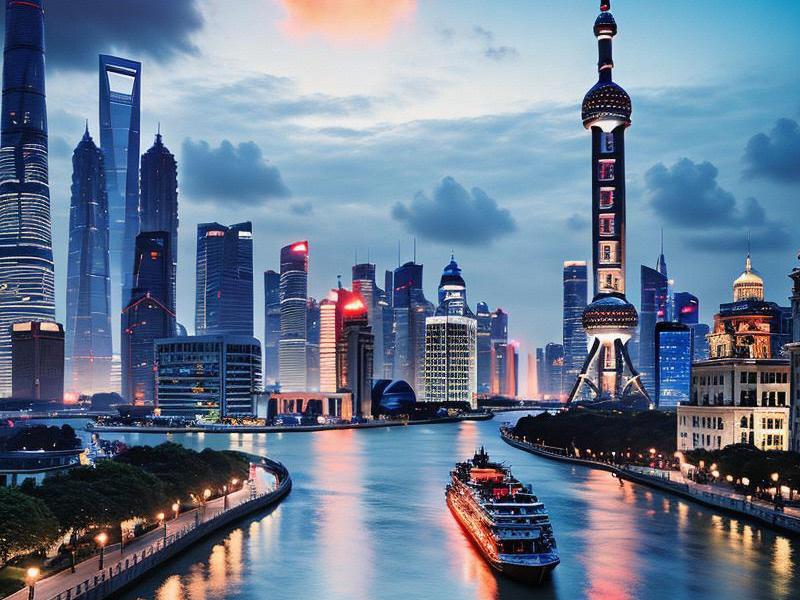This article delves into the multifaceted character of Shanghai, exploring its transformation from a traditional port city to a global metropolis. It highlights the city's economic prowess, cultural vibrancy, and international significance, offering insights into what makes Shanghai a unique and dynamic urban center.

Shanghai, often referred to as the "Pearl of the Orient," stands as a beacon of China's modernization and a testament to the country's rapid economic growth. Over the past few decades, this vibrant city has undergone a remarkable transformation, evolving from a modest fishing village into one of the world's most influential metropolises.
Nestled along the eastern coast of China, Shanghai boasts a strategic location that has historically made it a crucial hub for trade and commerce. Its deep-water harbor, one of the busiest in the world, has long been a magnet for merchants and traders from across the globe. This maritime advantage has played a pivotal role in shaping Shanghai's identity as a gateway to China, facilitating the exchange of goods, ideas, and cultures.
In recent years, Shanghai has solidified its position as an economic powerhouse. The city is home to the bustling Pudong Financial District, a symbol of China's financial might and innovation. Skyscrapers like the iconic Oriental Pearl Tower and the futuristic Shanghai Tower dominate the skyline, showcasing the city's architectural prowess and economic ambition. These landmarks not only serve as symbols of Shanghai's prosperity but also attract millions of tourists each year, eager to witness the city's unique blend of tradition and modernity.
The economic success of Shanghai can be attributed to its status as a key player in China's economic reforms and opening-up policies. The establishment of the Shanghai Free Trade Zone in 2013 further cemented the city's role as a hub for international trade and investment. This initiative has attracted numerous multinational corporations, fostering a dynamic business environment that thrives on innovation and competition.
上海龙凤论坛419
Beyond its economic achievements, Shanghai is a city that seamlessly blends tradition with modernity. The Bund, a historic waterfront promenade, offers a glimpse into the city's colonial past, with its charming European-style buildings standing in stark contrast to the modern skyscrapers of Pudong across the Huangpu River. This juxtaposition of old and new is a defining characteristic of Shanghai, reflecting the city's ability to preserve its cultural heritage while embracing progress.
Culturally, Shanghai is a melting pot of influences. The city has long been a center for art, literature, and fashion, attracting creative minds from all over the world. The Shanghai International Film Festival, one of the oldest and most prestigious film festivals in Asia, showcases the city's commitment to promoting cultural exchange and artistic excellence. Similarly, the city's vibrant art scene, with galleries, museums, and street art, reflects its status as a hub for contemporary culture.
Shanghai's culinary scene is another testament to its cultural diversity. The city is renowned for its unique blend of flavors, combining traditional Chinese cuisine with international dishes. From the famous xiaolongbao (soup dumplings) to the indulgent Shanghai-style steak, the city's food offerings cater to a wide range of tastes, making it a paradise for food lovers.
上海龙凤419足疗按摩
The city's commitment to sustainability and green development is also noteworthy. Shanghai has implemented various initiatives to reduce its carbon footprint and promote environmental conservation. The construction of green spaces, such as the Century Park and the Xintiandi Ecological Park, not only enhances the quality of life for residents but also serves as a model for sustainable urban planning.
Shanghai's international influence extends beyond its economic and cultural achievements. The city has played a pivotal role in shaping global governance and addressing pressing global challenges. As a founding member of the Asian Infrastructure Investment Bank (AIIB), Shanghai contributes to the development of infrastructure and sustainable growth in Asia and beyond. The city's active participation in international forums and organizations underscores its commitment to global cooperation and shared prosperity.
The future of Shanghai is bright, with ambitious plans to further enhance its status as a global metropolis. The ongoing development of the Shanghai Free Trade Port aims to deepen integration with the global economy, fostering innovation and entrepreneurship. Additionally, the city's focus on digital transformation and smart city initiatives positions it at the forefront of technological advancements, ensuring its continued relevance in the 21st century.
上海娱乐联盟
However, the rapid urbanization and economic growth of Shanghai also present challenges. Issues such as traffic congestion, air pollution, and housing affordability require careful management to ensure sustainable development. The city government has implemented various measures to address these concerns, including the expansion of public transportation networks, the promotion of green technologies, and the introduction of affordable housing policies.
Despite these challenges, Shanghai remains a symbol of China's aspirations and a model for urban development worldwide. Its ability to balance economic growth with cultural preservation and environmental sustainability serves as an inspiration for other cities striving to achieve similar success.
In conclusion, Shanghai is a dynamic metropolis that embodies the spirit of modern China. Its economic prowess, cultural vibrancy, and international significance make it a unique and influential city on the global stage. As Shanghai continues to evolve, it will undoubtedly play a crucial role in shaping the future of urbanization and global development.